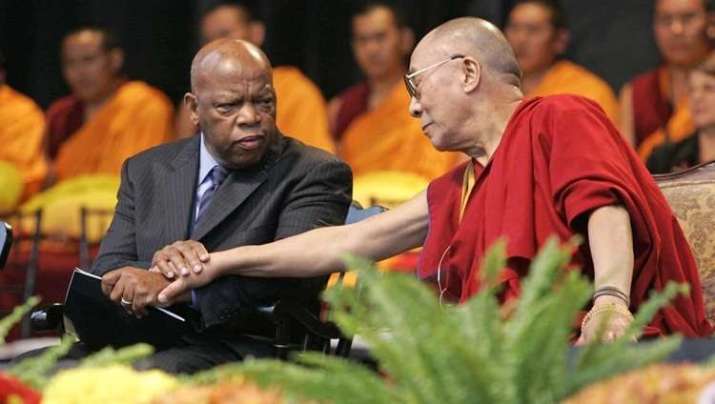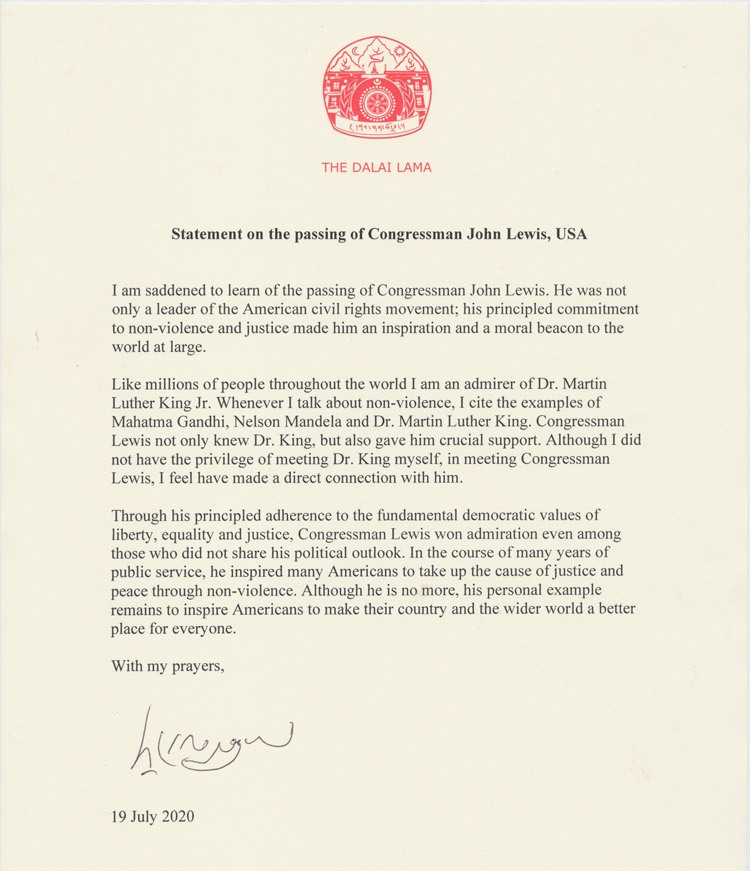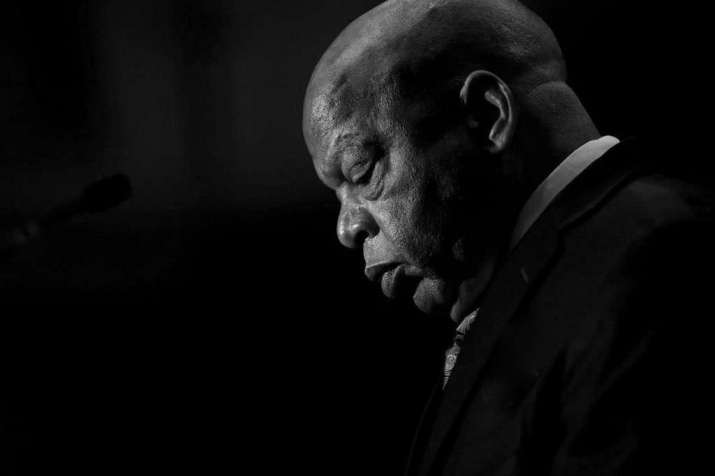
His Holiness the Dalai Lama issued a public statement on Sunday expressing sorrow over the death of United States congressman and renowned civil rights figure John Lewis, who passed away on Friday at the age of 80.
The Tibetan Spiritual leader praised Lewis as a leading light of the US civil rights movement who embodied a commitment to the principles and ideals of non-violence, justice, equality, and liberty. The Dalai Lama went on to describe Lewis as “an inspiration and a moral beacon to the world at large.” (Holiness the 14th Dalai Lama of Tibet)
His Holiness continued:
Like millions of people throughout the world I am an admirer of Dr. Martin Luther King Jr. Whenever I talk about non-violence, I cite the examples of Mahatma Gandhi, Nelson Mandela, and Dr. Martin Luther King. Congressman Lewis not only knew Dr. King, but also gave him crucial support. Although I did not have the privilege of meeting Dr. King myself, in meeting Congressman Lewis, I feel have made a direct connection with him.
Through his principled adherence to the fundamental democratic values of liberty, equality and justice, Congressman Lewis won admiration even among those who did not share his political outlook. In the course of many years of public service, he inspired many Americans to take up the cause of justice and peace through non-violence. Although he is no more, his personal example remains to inspire Americans to make their country and the wider world a better place for everyone. (Holiness the 14th Dalai Lama of Tibet)

The third of 10 children in a family of sharecroppers in rural Alabama, John Robert Lewis was born on 21 February 1940. He met Rosa Parks when he was 17 and met Martin Luther King Jr., with whom he went on to become friends, for the first time when he was 18.
Lewis became committed to the civil rights movement while a student at Fisk University in Nashville, where he earned a bachelor’s degree in religion and philosophy. After attending non-violence workshops held by the noted civil rights activists Rev. James Lawson and Rev. Kelly Miller Smith, Lewis became dedicated to the discipline and philosophy of non-violence, which he practiced throughout his life.
Lewis organized sit-ins and many other civil rights activities as part of the Nashville Student Movement, and in the process was arrested and jailed on numerous occasions. He was also active in organizing boycotts and other non-violent protests in the fight for voter and racial equality, despite at times experiencing violence firsthand—notably at the hands of police during a landmark 1965 civil rights march in Selma, Alabama, during which he was badly beaten.

Lewis was the last surviving member of the so-called “Big Six”—the leaders of six prominent civil rights organizations that were instrumental in organizing the 1963 March on Washington for Jobs and Freedom during the height of the US Civil Rights Movement—that also included Martin Luther King Jr., James Farmer, Asa Philip Randolph, Roy Wilkins, and Whitney Young.*
Lewis served in the United States House of Representatives from 1987 until his death on 17 July after a six-month battle with cancer. His last public appearance took place on 7 June at Black Lives Matter Plaza in Washington, DC, with Mayor Muriel E. Bowser, two days after a recording virtual town hall meeting with former US president Barack Obama.
Freedom is not a state; it is an act. It is not some enchanted garden perched high on a distant plateau where we can finally sit down and rest. Freedom is the continuous action we all must take, and each generation must do its part to create an even more fair, more just society. — John Lewis
* Some commentators include civil rights and women’s rights activist Dorothy Height as a member of the “Big Six.”
See more
His Holiness the Dalai Lama’s Statement on the Passing of Congressman John Lewis, USA (Holiness the 14th Dalai Lama of Tibet)
John Lewis, front-line civil rights leader and eminence of Capitol Hill, dies at 80 (Washington Post)












